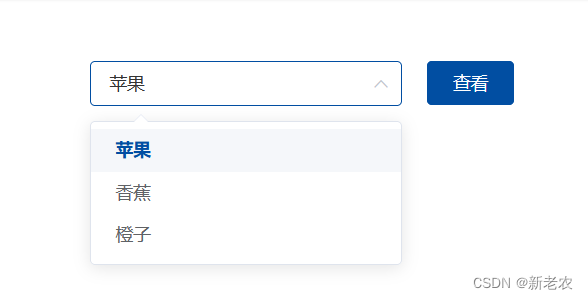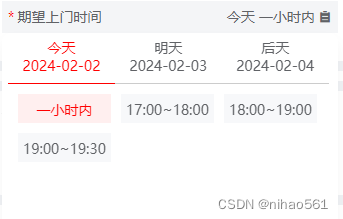Ref 与reactive
在 Vue 3 中,reactive 和 ref 是用于创建响应式数据的两个不同的 API。它们都是 Vue 3 Composition API 的一部分。
ref:
ref 用于创建一个包装基本数据类型的响应式对象。它接受一个初始值,并返回一个包含 value 属性的对象。ref 主要用于包装基本数据类型,如数字、字符串等。
import { ref } from 'vue';
const count = ref(0);
// 读取值
console.log(count.value); // 输出: 0
// 修改值
count.value += 1;
console.log(count.value); // 输出: 1
reactive:
reactive 用于创建一个包装普通对象的响应式对象。它接受一个普通对象,并返回一个代理对象,该代理对象中的属性都是响应式的。
import { reactive } from 'vue';
const user = reactive({
name: 'John',
age: 30,
});
// 读取值
console.log(user.name); // 输出: John
// 修改值
user.age += 1;
console.log(user.age); // 输出: 31
区别:
import { ref, reactive } from 'vue';
// 使用 ref
const count = ref(0);
count.value += 1;
// 使用 reactive
const user = reactive({
name: 'John',
age: 30,
});
user.age += 1;
为什么同时存在 ref()、reactive()?
ref 和 reactive 虽然都用于创建响应式对象,但它们在设计和用途上有一些区别,适用于不同的场景。理解这些差异有助于更好地选择合适的 API。
-
单一值 vs. 对象:
const count = ref(0); // 单一值 const user = reactive({ name: 'John', age: 30 }); // 对象 -
// 使用 ref count.value += 1; // 使用 reactive user.age += 1; -
响应式原理:
import { ref, reactive } from 'vue';
// 使用 ref
const count = ref(0);
count.value += 1;
// 使用 reactive
const user = reactive({ name: 'John', age: 30 });
user.age += 1;
虽然在某些简单的场景中使用 ref 就足够了,但当处理更复杂的数据结构时,尤其是需要进行深层次的数据操作时,reactive 提供了更强大的功能。选择使用哪个 API 取决于你的具体需求和项目的复杂性。
ref与普通变量的区别
ref 在 Vue 3 的 Composition API 中被引入,它主要用于创建响应式对象,尤其是用于包装基本数据类型的响应式对象。相比于普通变量,ref 具有一些特别的支持和行为:
注意
在 Vue 3 中当你将 ref 对象传递到模板(<template>)中时,会自动解包,无需额外使用 .value。这是 Vue 3 的一个改进,旨在提供更自然的语法。
以下是一个示例,演示了在模板中传递和使用 ref 对象的情况:
<!-- ParentComponent.vue -->
<template>
<div>
<p>Parent Component: {{ myRef }}</p>
<ChildComponent :childRef="myRef" />
</div>
</template>
<script>
import { ref } from 'vue';
import ChildComponent from './ChildComponent.vue';
export default {
components: {
ChildComponent,
},
setup() {
const myRef = ref('Hello from Parent');
return {
myRef,
};
},
};
</script>
<!-- ChildComponent.vue -->
<template>
<div>
<p>Child Component: {{ childRef }}</p>
<button @click="updateValue">Update in Child</button>
</div>
</template>
<script>
import { defineComponent } from 'vue';
export default defineComponent({
props: {
childRef: {
type: Object,
required: true,
},
},
methods: {
updateValue() {
// 在子组件中通过 .value 修改值
this.childRef.value = 'Updated in Child';
},
},
});
</script>
原文地址:https://blog.csdn.net/study_way/article/details/134758527
本文来自互联网用户投稿,该文观点仅代表作者本人,不代表本站立场。本站仅提供信息存储空间服务,不拥有所有权,不承担相关法律责任。
如若转载,请注明出处:http://www.7code.cn/show_29574.html
如若内容造成侵权/违法违规/事实不符,请联系代码007邮箱:suwngjj01@126.com进行投诉反馈,一经查实,立即删除!








